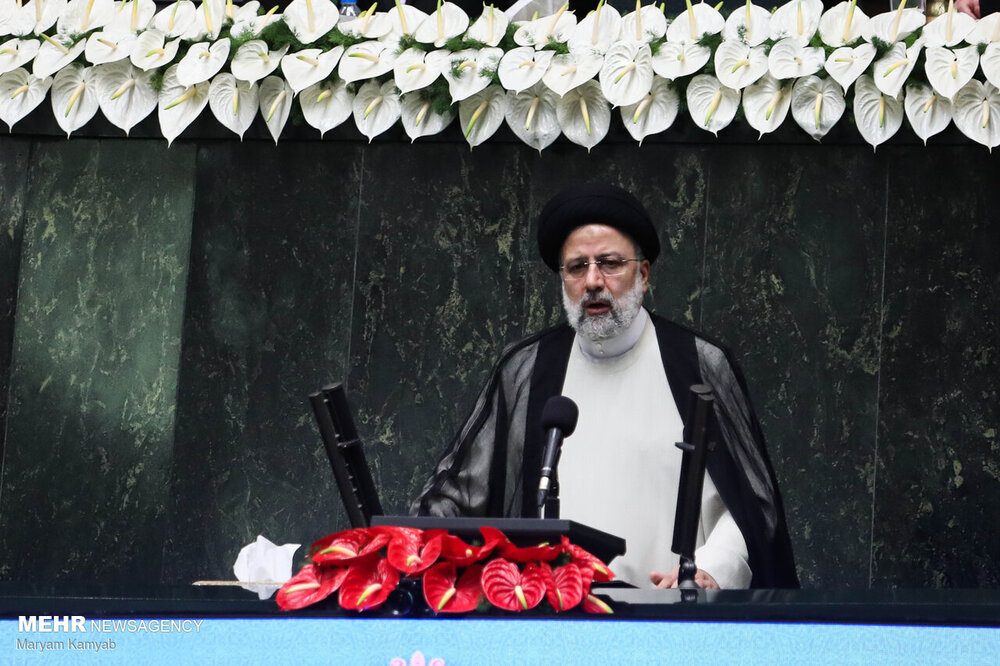Recent regional tensions raised questions on the fate of the indirect Washington-Tehran talks in Vienna.
Iran is set to resume the Vienna nuclear talks in early September under new Iranian President Ebrahim Raisi, a senior European Union official told AFP on Saturday.
Speaking on the condition of anonymity, the official told the new agency that the EU’s nuclear negotiator Enrique Mora spoke with the Iranian official expected to take charge of the Vienna talks, Hossein Amir-Abdollahian, during Raisi’s inauguration on Thursday in Tehran.
HE Minister of Commerce and Industry and Acting Minister of Finance, participated in the swearing-in ceremony of HE President Ebrahim Raisi, who was sworn in as President of the Islamic Republic of Iran in the Iranian capital, Tehran. #QNA pic.twitter.com/PzttL1lK2T
— Qatar News Agency (@QNAEnglish) August 5, 2021
“If there is no agreement, the situation for Iran will be much worse,” the EU official predicted. “We will work on the assumption we will get an agreement.”
Furthermore, the EU official said Amir-Abdollahian “is supposed to be the new foreign minister” in Raisi’s cabinet, though Tehran has yet to publicly announce who will replace Javad Zarif.
It also remains unclear whether Iran’s foreign ministry will take charge of the Vienna talks or whether they would be passed onto another body, such as Iran’s National Security Council.
Raisi, Iran’s former judiciary chief, was sworn in as the country’s new leader during a ceremony held in the Iranian parliament on Thursday.
The ceremony was attended by high-profile individuals from around the world, including Qatar’s Minister of Trade and Industry and the Acting Minister of Finance Ali bin Ahmed Al Kuwari.
During his half-hour long speech, Raisi called for the lifting of US sanction on Iran, which have severely struck the country’s economy since the former Donald Trump administration withdrew from the 2015 nuclear accord in 2018.
“Sanctions against Iran must be lifted, and we will support any diplomatic plan that achieves this goal,” he said.
He added that the people of Iran will not give into policies of “pressure and sanction” when “pursuing their legal rights including the right to development”.
Indirect US-Iran talks in Vienna kicked off in April this year in efforts to revive the Joint Comprehensive Plan of Action [JCPOA] following Washington’s withdrawal, with both sides expressing their readiness to restore the accord.
Iran bumped up its nuclear enrichment this year in retaliation to attacks on its nuclear facilities, namely the Natanz site, while blaming Israel for the ambush. Since then, the US has been expressing concern over the Islamic Republic’s lack of commitment to the nuclear deal.
Responding to Raisi’s speech, US State Department spokesperson Ned Price said that Washington’s message to the new president remains unchanged.
“Our message to President Raisi is the same as our message to his predecessors: The US will defend and advance our national security interests and those of our partners,” Price told a daily press briefing.
“But this is a new administration in Iran. We’ve heard their words. To us, actions will speak louder. And the Iranians clearly have some decisions to make,” added the Washington official.
The last round of talks in Vienna took place on 20 June, with reports suggesting diplomats would return to the negotiating table following Raisi’s inauguration.
However, recent tensions has raised crucial questions on the fate of the nuclear talks – most recent of which, a drone attack on the Mercer Street oil tanker off the Omani coast. The ship is managed by London-based and Israeli-owned Zodiac Maritime.
The G7 – the US, Britain, Canada, France, Germany, Italy and Japan – as well as Israel have blamed the attack on Iran.
However, Iran has denied those claims.
Last week, Qatar condemned the attack and called for regional security and stability to be maintained.
“Qatar called for resorting to the international law to ensure that such attacks would not be repeated in the future, to maintain security and stability in the region,” a statement issued by Doha’s foreign ministry [MOFA] read.
So far, President Raisi’s policies regarding the JCPOA have appeared to follow in the footsteps of his predecessor President Hassan Rouhani, with both seemingly open to reaching a settlement to return to the accord.
Follow Doha News on Twitter, Instagram, Facebook and Youtube







